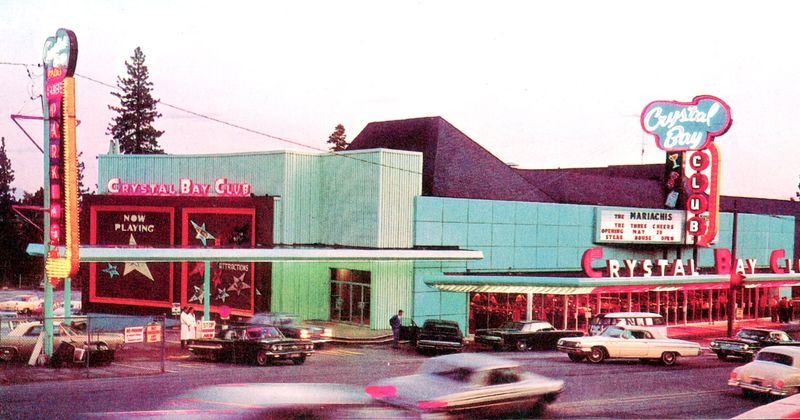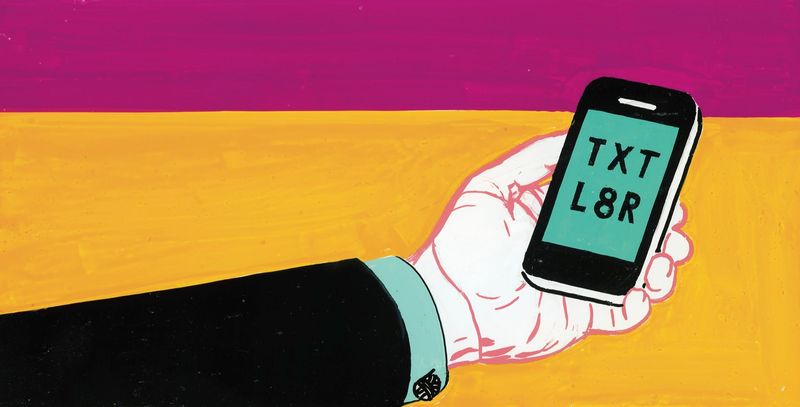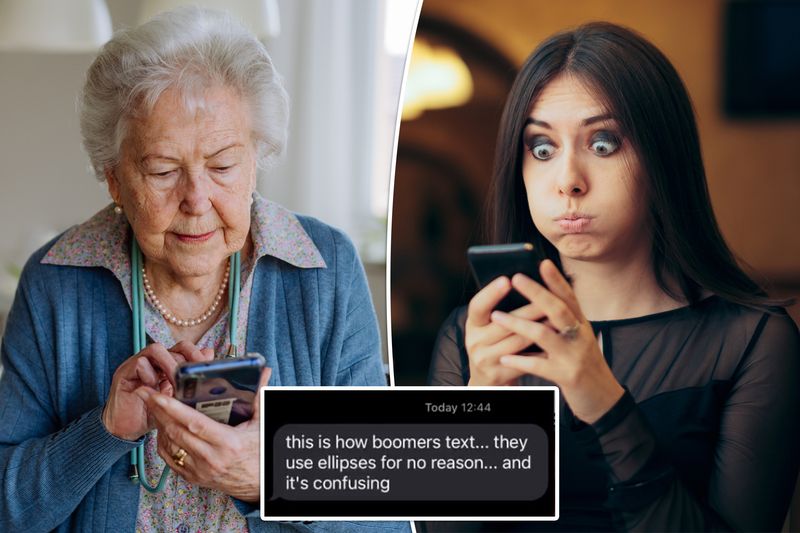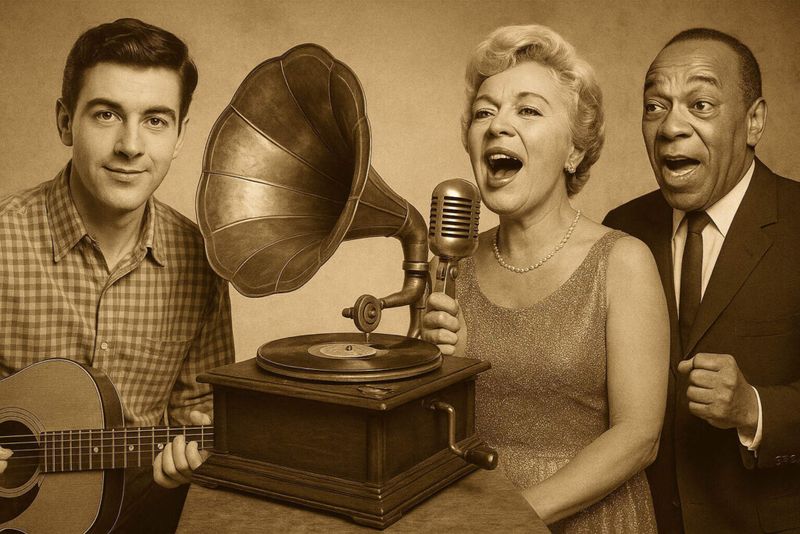In a world where generational gaps often lead to misunderstandings, Baby Boomers find themselves at the center of stereotypes that can be both humorous and frustrating. While these perceptions aren’t universally true, they persist, leading some to unjustly dislike this influential generation.
From technological struggles to nostalgic tendencies, Boomers are often judged by outdated clichés rather than individual merits. This list delves into 19 such reasons, shedding light on misconceptions and encouraging a more balanced view.
Through a mix of humor, empathy, and insight, let’s explore these unjustified reasons and rediscover the unique contributions Boomers continue to make to society.
1. They don’t understand modern technology.
Imagine watching your grandparents try to program a VCR—or in today’s terms, sending a text message. For Baby Boomers, navigating the world of modern technology can be like learning a new language. The struggle is real, but so is the effort. Consider the patience required to master gadgets that seem to update every other week.
Despite the occasional misstep, Boomers have adapted to technologies their younger selves couldn’t have imagined, proving that age is just a number when embracing change. Though they may not always be the quickest to adopt new trends, their persistence in learning shows a resilience that often goes unrecognized.
Many Boomers have become savvy users of social media, even if their approach is slightly different than younger generations. It’s a learning curve, not a failure, and that effort deserves recognition.
2. They’re always nostalgic for ‘the good old days.’
“Remember when music had real lyrics and summers seemed endless?” Nostalgia is a powerful emotion, often painting the past in a glowing light. For Boomers, ‘the good old days’ represent more than just fond memories—they are a cherished connection to a simpler time.
This longing isn’t about rejecting the present but celebrating the moments that shaped their identity. The stories they share, though sometimes embellished, offer a window into the values and experiences that defined a generation.
While younger folks might find these reminiscences tiring, they are a testament to a rich history. By understanding this sentiment, we can appreciate the cultural heritage Boomers bring to the table.
3. They ruined the housing market for younger generations.
Housing affordability is a complex issue, and while Boomers often get blamed, it’s important to recognize the broader economic factors at play. Many Baby Boomers bought homes when prices were significantly lower, benefiting from a market that has since skyrocketed.
This isn’t to say they foresaw or orchestrated the current housing crisis. Instead, they were participants in a dynamic market shaped by policy, demand, and financial systems beyond their control.
The narrative that Boomers ‘ruined’ the market overlooks their own struggles with rising costs, property taxes, and the challenges of downsizing in later life. Understanding this complexity can help bridge generational divisions and foster empathy.
4. They don’t know how to text properly.
Typing a coherent text message can be a daunting task for some Boomers. Auto-correct mishaps and accidental emojis make for hilarious exchanges, reminiscent of a comedic sketch. It’s not that they can’t learn, but that new communication norms evolve faster than they can keep up.
Rather than focusing on these digital missteps, we might appreciate their willingness to embrace texting at all. For many, texting is a bridge between generations, an effort to stay connected with family and friends.
It’s a learning experience filled with quirks that often lead to laughter and a sense of camaraderie, reminding us that connection, not perfection, is key.
5. They use too many ellipses in emails.
Ellipses in emails are a signature Boomer move, often leaving recipients wondering about the intended tone. These three little dots can convey suspense, hesitation, or simply a pause for effect, but they often come across as cryptic.
For Boomers, this habit may stem from a time when communication was less formal and more conversational. The ellipsis becomes a tool for creating a relaxed, open-ended dialogue.
While it might baffle younger generations accustomed to more concise communication, it’s a reminder of the era when letters were thoughtful compositions. Meeting in the middle, understanding these nuances, can turn confusion into a charming exchange.
6. They think avocado toast is silly.
To some Boomers, the avocado toast phenomenon is baffling. Why pay a premium for something easily made at home? This view isn’t about resisting new trends, but rather a reflection of a frugal mindset shaped by different economic priorities.
Growing up in an era focused on practical sustenance, Boomers often prioritize value over novelty. The skeptical glance at this trendy meal reveals more about generational differences in spending habits than outright disdain.
It’s a humorous reminder of how tastes evolve and how each generation brings its unique flair to culinary preferences. By laughing together at these contrasts, we foster understanding and shared experiences.
7. They still believe in ironing everything.
In an age of wrinkle-free fabrics and casual wear, the art of ironing might seem antiquated. Yet for many Boomers, there’s unmatched satisfaction in a crisp, ironed shirt. This dedication harks back to a time when appearance was closely tied to respectability.
Ironing isn’t merely about aesthetics but symbolizes discipline, attention to detail, and pride in one’s presentation. While younger generations may opt for convenience, there’s something admirable about this commitment to tradition.
What seems like an outdated practice is, for Boomers, a comforting ritual—a link to a time when care and effort were visibly rewarded.
8. They call instead of texting—and expect you to answer.
Boomers grew up in an era where the telephone was king. For them, a phone call is the most direct form of communication, offering nuances lost in text. When they call, they expect a conversation, not just information exchange.
This preference is about more than habit—it’s about connection. A call is personal, immediate, and heartfelt, a chance to hear a loved one’s voice and share a moment in real-time.
While today’s fast-paced world leans towards texting, this old-school approach reminds us of the intimacy and warmth a phone call can offer, bridging distances with the sound of a familiar voice.
9. They have strong opinions about proper grammar.
Who could resist the allure of a perfectly structured sentence? For Boomers, grammar is not just a set of rules but a cherished art form. Their strong opinions often stem from educational norms where grammatical precision was paramount.
In a world of abbreviations and emojis, these grammar guardians might appear rigid, but their passion is rooted in a love for language and clarity of expression. It’s about preserving the beauty and precision of communication.
While some might find this stance outdated, it’s a reminder of the importance of language as a tool for connection and understanding. A well-placed comma can change everything.
10. They think TikTok is a waste of time.
To many Boomers, TikTok’s fast-paced, bite-sized videos seem frivolous, a stark contrast to the more measured media they are accustomed to. This perception isn’t about dismissing innovation but reflects a different approach to entertainment and information.
While TikTok might seem like a time-waster to some, it’s a platform where creativity flourishes, often in ways unfamiliar to older generations. The skepticism stems from valuing depth over brevity, but it overlooks the community and expression it fosters.
Understanding this perspective allows us to appreciate the diverse ways people find joy and connection in media, embracing both the old and the new.
11. They listen to music that’s ‘too old-fashioned.’
To the ear attuned to modern beats, the music of a Boomer might sound like a relic from another time. Yet those melodies carry the soundtrack of their lives, echoing memories and emotions that shaped a generation.
It’s not just about the music but the stories and connections interwoven with each tune. These songs were the backdrop to pivotal moments, from first loves to social revolutions.
Rather than seeing this preference as outdated, it’s a chance to explore the rich tapestry of history and human experience through music. Each record spun is a journey into the heart of a past era.
12. They take cash everywhere and hate contactless payments.
In a rapidly digitizing world, the tactile reassurance of cash still holds sway for many Boomers. It’s reliable, tangible, and free from the glitches of digital systems. The reluctance towards contactless payments isn’t about resisting change but stems from a trust built over decades.
Cash offers a sense of control and security, a physical exchange that feels genuine and accountable. While younger generations embrace the convenience of digital payments, Boomers find comfort in the tried-and-true.
This mindset is an echo of a time when financial transactions were personal and direct—a perspective that values trust over speed.
13. They think working hard automatically equals success.
For Boomers, the mantra “hard work equals success” is a deeply ingrained belief. Born from a time where dedication and perseverance were seen as direct paths to achievement, this mindset has shaped their professional lives.
While the modern landscape acknowledges the role of networking, innovation, and luck, Boomers often hold onto the idea that effort alone can overcome obstacles. This belief reflects a commitment to diligence and integrity.
Recognizing this perspective provides insight into the values that fueled their careers, even as the world evolves. It’s a testament to their relentless pursuit of goals, an ethos worth appreciating.
14. They don’t always understand pronouns or new terms.
Language is ever-evolving, and for Boomers, keeping up with new pronouns and slang can be daunting. It’s not about unwillingness to learn but navigating changes that seem to arrive overnight.
Understanding new terms requires time and context, something not always readily available. While mistakes happen, many Boomers are eager to adapt, showing openness and respect.
This journey reflects broader themes of change and acceptance, illustrating that learning is a lifelong process. By engaging in open dialogue, we bridge gaps and foster inclusivity across generations.
15. They say things like ‘back in my day…’ a lot.
“Back in my day…” is a phrase often met with eye rolls, yet it carries the weight of lived experience. For Boomers, these tales are not just recollections but lessons, imparting wisdom gleaned from a lifetime.
These stories transport listeners to a different era, offering insights into the challenges and triumphs that shaped their world. Though sometimes perceived as preachy, they are often shared with the hope of connecting and imparting lessons.
Rather than dismissing these anecdotes, embracing them can enrich our understanding of history and human resilience, offering timeless advice disguised as nostalgia.
16. They still subscribe to paper newspapers.
In an age dominated by digital news, the rustle of a paper newspaper holds a special place in the hearts of many Boomers. It’s not just about staying informed but enjoying a ritual that engages the senses and offers a tactile experience.
For Boomers, paper newspapers represent a commitment to depth and detail, often providing a more comprehensive view than quick online articles. This preference reflects a desire for thoughtful journalism and leisurely consumption.
As we embrace digital convenience, there’s value in appreciating the slower pace and deliberate consideration that comes with traditional media.
17. They question why anyone needs therapy.
Therapy is a concept that can puzzle some Boomers, who grew up in a time where self-reliance was emphasized and mental health was a private matter. This skepticism is rooted in a generational focus on resilience and stoicism.
Yet, as conversations around mental health become more open, many Boomers are beginning to see its value, recognizing the changing perceptions of wellness.
This journey from skepticism to understanding highlights the broader cultural shift towards mental health awareness and the ongoing dialogue between generations about care, support, and empathy.
18. They think jeans should never have holes.
For Boomers, jeans were once a symbol of rebellion and youth, but the intentional rips and tears of today’s fashion are perplexing. They view intact denim as a sign of quality and practicality, a contrast to the distressed styles embraced by younger generations.
Their perspective is shaped by an era where clothing was valued for durability and function. This appreciation for craftsmanship over trendiness offers a different view on fashion.
While torn jeans might seem frivolous to some, this difference in style preferences is a playful reminder of how fashion evolves, reflecting individual and collective identities.
19. They laugh at memes but don’t share them properly.
Memes are a staple of modern humor, and while Boomers enjoy a good laugh, sharing them can be a challenge. The mechanics of social media aren’t always intuitive, leading to amusing mishaps in the digital age.
This difficulty isn’t due to a lack of appreciation for humor but reflects the rapid changes in how we connect and communicate. Many Boomers are game to try, even if their efforts lead to a few laughs at their expense.
It’s a lighthearted intersection of tradition and technology, where the joy of sharing a funny moment transcends any technical hiccups, reminding us of the universal appeal of laughter.




















